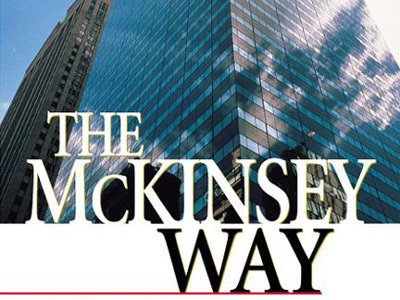Strategy: A History | Authors at Google | Sir Lawrence Freedman
Here is a fabulous Google Talks video with Sir Lawrence Freedman in which he discusses some of the most hard-hitting ideas from his book Strategy: A History. Google Talks describe this book as ‘sweeping and magisterial’ in their introduction to the talk, and we have to agree.
It’s an account of the history of strategy which opens with a discussion about its origins in Napoleonic and French Enlightenment thinking. While strategic thinking has obviously been a part of human wisdom since the times of Alexander the Great or Homer’s Agamemnon, it was in the Enlightenment era that the systematic application of reason to the science of strategy first began. And it goes on to discuss the development of strategic theories up to the present day.
It’s a fascinating discussion and one that provides many insights. However, it is a long discussion so we’ve outlined a few of the key points below.
What is the essence of strategy?
‘Strategy is the way people think about their situation’. It is an attempt to impose order on chaos, to impose the will of the individual or corporation on the world. Strategy is the application of reason to the problem of how to respond to the situation one is in. This last point is a subtle one and lies at the heart of Freedman’s main message. Our strategy options are constrained and our even our thinking affected, by the situation in which we already find ourselves. For example, the thinking of WW1 Generals was constrained by Napoleonic strategy and yet they found themselves faced by the machine gun. It’s a strategy mistake to assume that strategy is a constant, it must always be adapted and rooted in our own situation.
Strategy isn’t Utopian
All too often we think of strategy as starting out with an end goal that we’d like to achieve and then we design a strategy to get us there. Freedman points out that very often this doesn’t match real world experience where things go wrong and good strategy is often to be flexible and reactive to the unpredictable situations and able to adapt swiftly to change.
The importance of narrative
It is vitally important not only to be able to influence events but also to influence how people think and feel about events. This has very resonant lessons for businesses. For marketing and branding managers it’s important that they be able to weave unpredictable events into their brand mythos. For leaders it’s important that they can thread together a narrative which their employees, clients and customers can get behind.
In what circumstances can the underdogs win?
Here Freedman cites age old story of David and Goliath. In this story the key elements are surprise, deception and unpredictability: the ability to change the rules of engagement. This image of the dangerous minnow seems particularly poignant for us now with disruptive technologies and startups creating real difficulties for larger businesses.
A winning character
Freedman argues that their are certain character qualities which run like a red line throughout strategic history. These are he says ‘endurance’ where the ability to keep on getting back on your feet, the ability to build ‘coalitions’ where you create power through relationships, and finally empathy which feeds back into how you build relationships and get the best from your employees.
We hope you can take the time to watch the whole discussion now that we’ve given you a glimpse into the wisdom on offer. If you enjoyed this please join the conversation with us on Twitter









Leave a Reply
Want to join the discussion?Feel free to contribute!